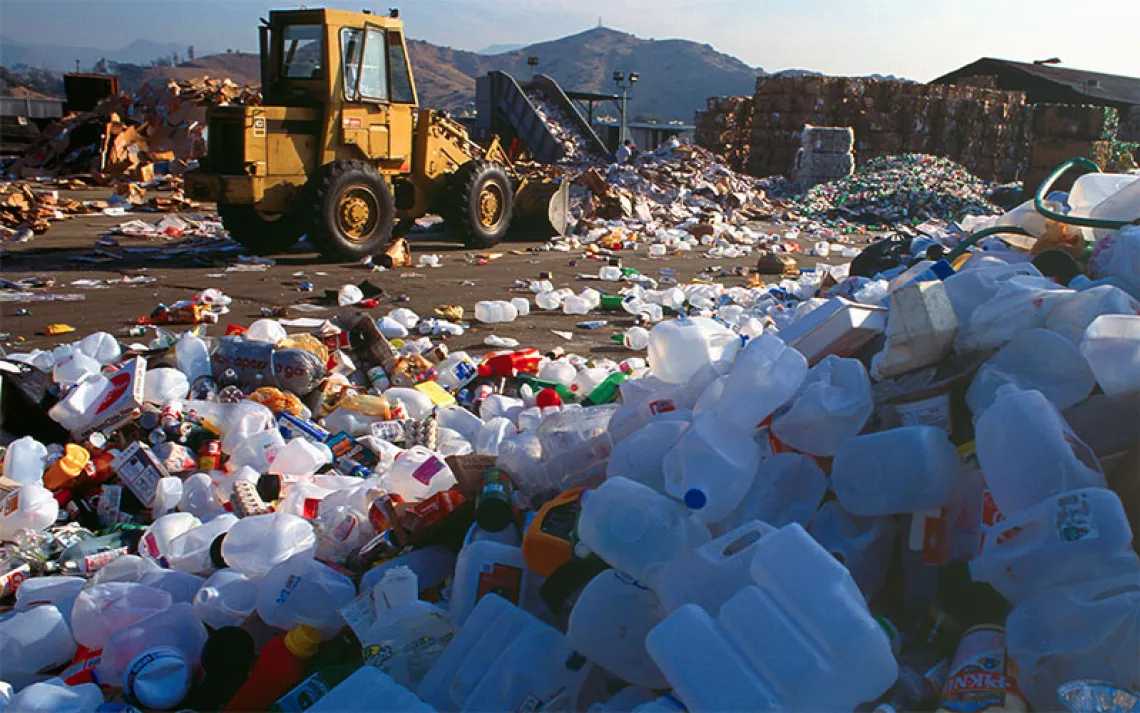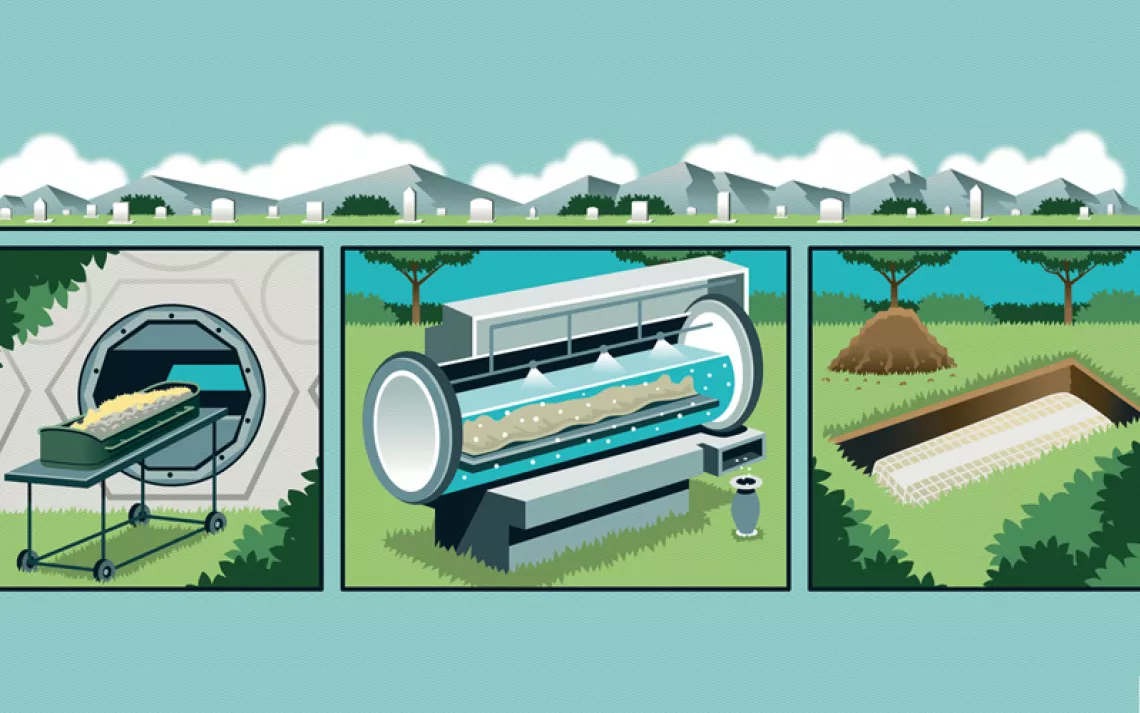Why Isn't There One Easy Way to Recycle Glass?
It's complicated, says Mr. Green

Photo by kristo74/iStock
Hey Mr. Green,
I’m having a hard time finding clear answers about glass recycling. What about it?
—Jackie in Superior, Wisconsin
Glass presents some tough recycling problems—including lack of end markets, contamination, and transportation costs—partly because it weighs about 10 times as much as a similar volume of plastic or aluminum. It busts up easily, which makes it hard on equipment and increases maintenance costs. Also, glass fragments easily mix with paper and cardboard in single-stream recycling, reducing the value of these products. That’s made the market for recycled glass limited or nonexistent in different parts of the country.
Many areas now use single-stream recycling, where all refuse goes into a single bin. While single-stream does increase the amount deposited in recycling containers, sorting out the stuff becomes difficult. Some towns have achieved a much higher rate of recycling by using dual bins that keep glass and paper separated.

Sign up to receive Sierra News & Views
Get articles like this one sent directly to your inbox weekly.
With this action you affirm you want to receive Sierra Club communications and may vote on policy designated by the Sierra Club Board.
To make glass recycling profitable, the volume recycled would have to increase, which is unlikely to happen unless more deposit laws are passed. The 11 states with deposit laws recycle at a rate of 66 percent, compared to the mere 24 percent in states without the laws (click here for more information about how deposit laws work).
 The Magazine of The Sierra Club
The Magazine of The Sierra Club



